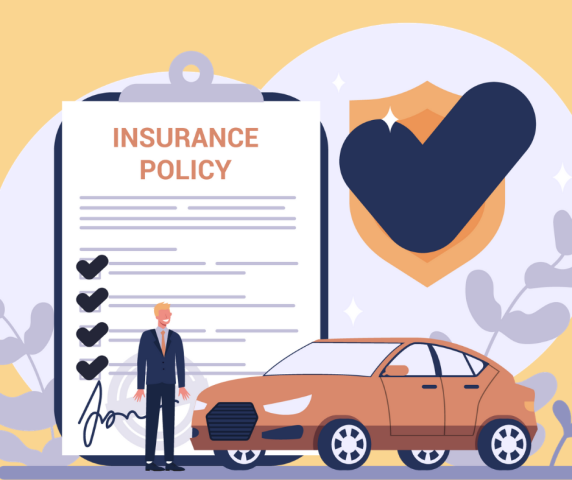- Guest Contributor
- April 9, 2021
If you’re a gig worker or independent contractor and you use your car for work, you’ll need auto insurance. The type and amount of insurance you’ll need depend on factors including the job you’re doing. We’ve created a rate comparison tool here to help you find the best insurance options.
Ridesharing Insurance
If you’re doing jobs for Uber, Lyft, or other ridesharing services, you’ll need a special type of policy. If you’re doing delivery services, such as Grubhub, Uber Eats, DoorDash, or Instacart, you’ll need coverage as well. Some insurance companies offer separate ridesharing auto insurance policies for self-employed workers. Others may tack on a rider to your personal auto insurance policy.
These policies cover you only when you’re in transit with passengers or items in the car or you’re en route to a pickup. You’ll need a personal policy for all other uses, including wait time. Without this type of policy, your personal policy won’t cover accidents on the job.
Insurance companies might even cancel your personal policy if they find out you’re using your car for hire and haven’t disclosed it – even if you’re covered through the rideshare company.
Ridesharing insurance premiums can be as low as $20 a year if added to your personal auto insurance. They can also run as high as 20% of your premium.
Personal Coverage or Commercial Auto Insurance
If you’re providing services or work besides ridesharing and you’re using a vehicle to do it, your vehicle typically won’t be covered by your personal policy unless you’ve disclosed it. You may need commercial auto insurance to be covered.
Commercial auto insurance will be more expensive than personal auto insurance because there’s the potential for greater liability for an on-the-job accident. While rates will depend on the job, location, miles you drive, and how often you drive for work, expect an additional $100-$200 per month.
Tax Deductions
If you use your car for business purposes, you can deduct certain business expenses when it comes to tax time. On the other hand, if you only use it for business, you may deduct the entire cost of operations (in most cases) per the IRS. If you mix personal and business use, you can only claim the portion used for business.
You can claim the standard mileage rates as determined annually by the IRS or claim actual expenses pro-rated for business miles. Either way, you’ll need to track your miles to prepare for filing your independent worker tax return.
Discounts
When discussing your auto insurance needs, make sure you provide an accurate accounting for your estimated use. You may be able to get discounts, including:
- Multi-vehicle bundling
- Multi-policy bundling (such as home and auto)
- Autopay
- Safe driver / good driver discounts
Make sure you pick the best auto insurance for your needs
You may need to search a bit because not all insurance companies offer rideshare insurance in every state. Personal policies may vary based on where you live and diligent research can save you a lot in the long run.
Regardless of the type of work you do or where you live, it pays to shop around. Be honest about your situation to make sure you get the coverage you need. If you use your car for work but leave that fact out to get a lower rate, your insurance company may not cover you if there’s an accident.
Looking for the best auto insurance as a self-employed worker? Compare auto insurance rates for gig workers by using our auto rate comparison tool to search for gig worker auto rates in your area.
About the Author: Paul Dughi has an MBA in Business Administration and has held executive management positions in the media industry for the past 30 years. He is an Emmy® Award winning Producer/Writer and has authored two books on Marketing, Management, and Sales. You can find him on WriterAccess.











